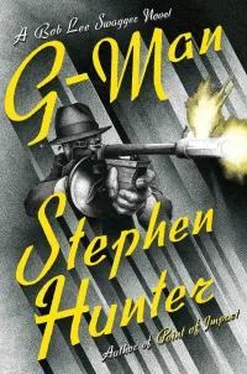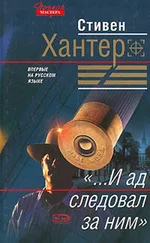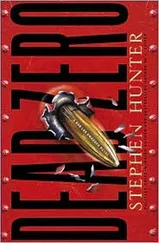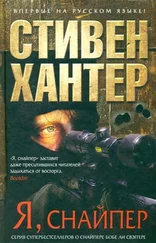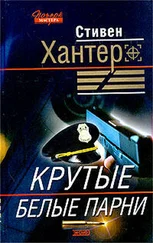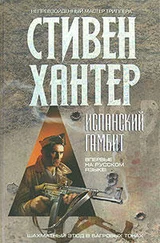Стивен Хантер - G-Man
Здесь есть возможность читать онлайн «Стивен Хантер - G-Man» весь текст электронной книги совершенно бесплатно (целиком полную версию без сокращений). В некоторых случаях можно слушать аудио, скачать через торрент в формате fb2 и присутствует краткое содержание. Жанр: Старинная литература, на английском языке. Описание произведения, (предисловие) а так же отзывы посетителей доступны на портале библиотеки ЛибКат.
- Название:G-Man
- Автор:
- Жанр:
- Год:неизвестен
- ISBN:нет данных
- Рейтинг книги:3 / 5. Голосов: 1
-
Избранное:Добавить в избранное
- Отзывы:
-
Ваша оценка:
- 60
- 1
- 2
- 3
- 4
- 5
G-Man: краткое содержание, описание и аннотация
Предлагаем к чтению аннотацию, описание, краткое содержание или предисловие (зависит от того, что написал сам автор книги «G-Man»). Если вы не нашли необходимую информацию о книге — напишите в комментариях, мы постараемся отыскать её.
G-Man — читать онлайн бесплатно полную книгу (весь текст) целиком
Ниже представлен текст книги, разбитый по страницам. Система сохранения места последней прочитанной страницы, позволяет с удобством читать онлайн бесплатно книгу «G-Man», без необходимости каждый раз заново искать на чём Вы остановились. Поставьте закладку, и сможете в любой момент перейти на страницу, на которой закончили чтение.
Интервал:
Закладка:
They had been helicoptered in on the other side of the mountain, moved by compass through the night with surprising grace and stealth for such big men, and set up, Imodium-prepped and diapered for urination issues, by dawn. They had not moved an inch all day and rarely said anything, as Rawley monitored the StingRay cell site simulator in his backpack for progress reports and read a well-thumbed paperback of Borges’s Labyrinths . Braxton dreamed of the Dallas Cowgirl cheerleaders and a solid-gold Escalade, squished ants, ate energy bars, pissed in his diapers, and kept saying, over and over, “Three million dollars.”
He tried not to have a memory-wallow when he pulled in. The foundations still stood, as they were stone. But the timber, unmaintained, had yielded in large part to rot. One wall remained erect, though it looked creaky, and part of another wall, though angled toward collapse and buttressed only by rotting slats. The interior was gutted, most of the floorboards broken, and tendrils had begun to insinuate their way through cracks, gaps, fissures, and collapse. It had the stink of the old and disused. Dust and spiderwebs and dead leaves and vegetative debris lay everywhere.
Against his will, he remembered otherwise: when the cabin was whole, when it was painted green, when his father and Sam Vincent and various other men had hunted there every fall. Rustic, never chic, it never leaked, held the warm in, the cold out. It had once had a porch where the men would sit after the day’s hunting, drinking bourbon, smoking cigars, telling stories, enjoying everything, but most of all enjoying being men. Much laughter while the boys were off in the yard, cleaning the deer, learning the responsibilities of the hunt that Field & Stream never wrote about. Then, when they were done, the boys might sit together in the lee of the porch, listening to the men talk, about politics, baseball, Razorback football, sometimes the war, though Earl never said a word on that subject and was never asked, as all respected the harshness of his five-island ordeal against the Japanese.
Now ruin and decay, the past. Dust and dead leaves of a distant cosmos. Untouched by human hands in decades. Again, he was good at repressing, the essential sniper talent, and so he finally tossed those memories down a hole somewhere in his brain.
He reverted to task. Consulting the map, he immediately found the ragged wall of foundation that corresponded to the diagram, found next the window well, which was the starting spot. He’d measured, found the degrees of northwest direction from the corner of the window well to be 43, and, using a compass, established that as his line of march. The dashes on the map had to be steps, and as there were fourteen of them, he walked fourteen and, just as the map indicated, came to the trunk of an elm. The elm was still there, still magnificent, and would outlast him, as it had outlasted Earl and, before him, Charles. It was stately, magnificent, calm, unperturbable, still leafy and healthy.
Now he stepped around it, tracked five more steps outward on the same line, and stood where X marked the spot.
Digging is never any fun, unless you’re clinically insane or have an IQ of about 34. Neither of those conditions applied to Swagger. But it gets even worse if you’re seventy-one and have been shot thirteen times, cut badly once, waterboarded, and are currently working your way through artificial hip number two. Still, he did what he had to do, and the light went away, the forest grew still.
He found a rhythm for the pick, with which he scrambled the hard topsoil and scruff vegetation and weeds to clods and lumps and grit, all of it easily movable by shovel. The shoveling also demanded not only rhythm but more back, and though the work never quite achieved the threshold of sheer torture, it was never less than profoundly unpleasant. The hip was okay, being relatively new to his body, but his lower back sang an aria of hurt on each downstroke, and his chest issued squeaks of distress. The pile beside the hole grew, as did the hole itself, and as usual it seemed to violate all the rules of physics, including relativity, that such a vast heap should be drawn from such a tiny penetration.
The sun disappeared totally, and though it was not strictly necessary, he set up his big light to illuminate the task that remained. He’d always been a worker and allowed himself no lollygagging, took five off in sixty and one sip of bottled water, and kept at it till it seemed he ought to be done, unless the old bastard had gotten all the way to China and stashed it there.
In the next moment, he felt the thud of striking something hard and vibratory, surely wood. Bingo!
But still another two hours remained, even if being on the downslope of the task filled him with energy, dulled his hurting, cooled his brow, dried his sweat. On and on and on it went until at last he’d excavated what the light revealed to be a coffin.
God, I hope there ain’t no body in it.
It seemed unnecessary to actually remove the dirt that packed the bottom half of the box. Instead, he went hard at it with the pick, chopping, loosening, reducing its adhesion, and more or less freed the base of the structure from the earth that had claimed it all these years. The next issue was pulling it upward and out, and once he got it over the eighteen-inch lip of the trench, it was all right. It took all he had left in chest and arms but, in the end, wasn’t as formidable as a body might have been, since, as he totaled it, it had to be less than fifty pounds’ worth of weight.
And, finally, it was there, in the bright blaze of the light’s spot. A coffin, wooden, crusted, and stained, but evidently still intact, having yielded to no incursion over the years. The old man must have shellacked it, or slathered the Cosmoline on, or whatever, amplifying the Georgia pine’s toughness and resistance to the encroachment of moisture.
He got the crowbar, worked it under the nailed lid, and pushed. The wood yielded an inch, so he repeated this process around the edge of the box, and finally the lid raised a bit, loosened on its nails. He drove the bar in deeper, applied full strength, and with the creak of wood relinquishing its grip on nails the lid lifted a few degrees more. He repeated the same drill up and down the box. Finally, a mighty yank, and the thing stood opened.
He snatched the light to examine the treasure. Hmm, it was a batch of tightly wrapped bundles in oilcloth, each secured by an enthusiastic abundance of woven cord. He selected one that seemed the most promising by shape and weight, cut through the cord with his knife, unrolled the bundle and laid it bare to see before him Baby Face Nelson’s Monitor.
There it was, though glutinous, almost luminescent, in the freaky light, with gobs of Cosmoline, that miracle grease that protects metal against all comers for years and years and centuries, oozing off it, out of its openings, dribbling and melting. Bob couldn’t believe it. He pulled it out. By god, it was indeed the thing itself.
The familiar contours of the base Browning Automatic Rifle, though lighter at sixteen pounds than the familiar Marine Corps twenty, the incredible density of the piece, all evident, even if the magazine well was empty. He checked the geegaws that made it a Monitor instead of a BAR, and sixteen pounds instead of twenty: the shorter barrel, the shorter buttstock, and, most peculiar of all, the pistol grip descending from the trigger guard on the underside of the receiver. Only the Space Cadet compensator was missing, and that was in his pocket.
At that moment the world flashed to red, as a laser dot hit him in his eye, knocking his night vision to crazyworld. He blinked to clear away the dazzle, and when he got some focus back, he saw the dot nesting on his chest. He tracked the beam back forty yards to a scruff of brush. Then another light blinked to vivid and nailed him in the chest, holding solid and still.
Читать дальшеИнтервал:
Закладка:
Похожие книги на «G-Man»
Представляем Вашему вниманию похожие книги на «G-Man» списком для выбора. Мы отобрали схожую по названию и смыслу литературу в надежде предоставить читателям больше вариантов отыскать новые, интересные, ещё непрочитанные произведения.
Обсуждение, отзывы о книге «G-Man» и просто собственные мнения читателей. Оставьте ваши комментарии, напишите, что Вы думаете о произведении, его смысле или главных героях. Укажите что конкретно понравилось, а что нет, и почему Вы так считаете.
